THE GREEN LINE
ORIGINAL STORY
Leslieville’s low-cost recipe for building up local entrepreneurs with local resources
The Green Line team visited the East End Food Hub to see how Leslieville Farmers' Market Basecamp supports emerging entrepreneurs with business training, affordable kitchen space and opportunities to sell.
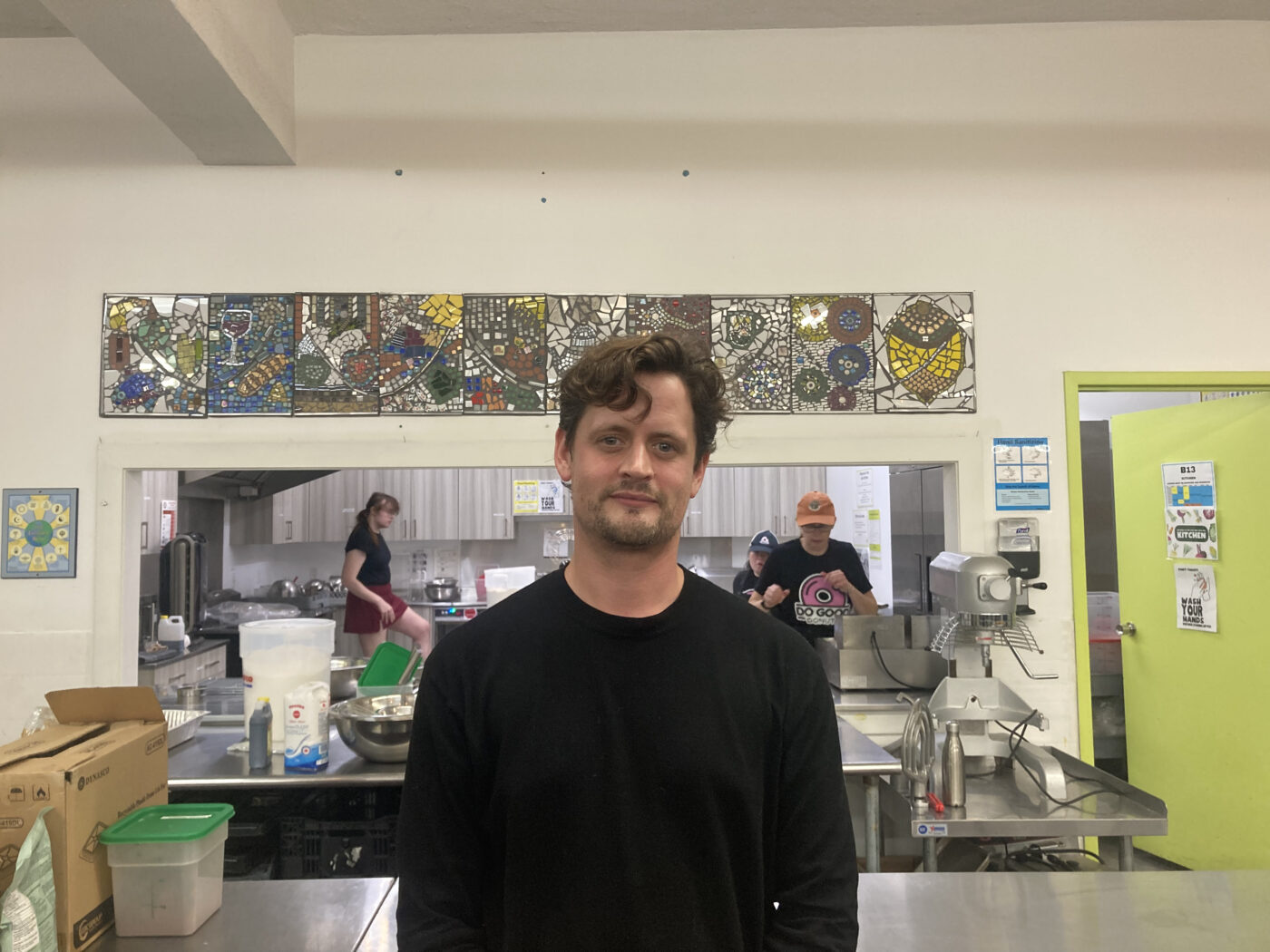
Daniel Taylor, executive director of the Neighbourhood Food Project, stands inside the commercial kitchen and workspace of LFM Basecamp at 1470 Gerrard St. E.


AMANDA SERAPHINA JAMES RAJAKUMAR
Indian immigrant with a post-grad in journalism from Centennial College. Now living in Grange Park, meeting new people, and hearing different stories. Has four names, so it’s a pick-your-player situation.

MARY NEWMAN
British-Canadian journalist with a decade’s experience producing for the BBC and CBC. Hails from Robin Hood country so naturally hates wealth inequality and loves organized labour. Now resides in the dog paradise of Roncesvalles.
Oct. 3, 2025
How to build up local entrepreneurs
- Find local churches or non-profits that offer low-cost commercial space, such as kitchens.
- If necessary, gather a group of residents who support the work to pool money and renovate the space.
- Go out in the community, build a rapport and invite local entrepreneurs to rent the space.
- Use the gaining traction to reach out to investors and apply for a seed grant at the Ontario Trillium Foundation.
- Collaborate with local farmers’ markets and pop-ups to allow entrepreneurs to try and test their products.
Entrepreneurship goes beyond a brilliant idea — it takes time, money, network building and knowing city regulations.
That’s why Leslieville Farmers’ Market brought together the resources needed to help budding local entrepreneurs try, test and successfully launch their business.
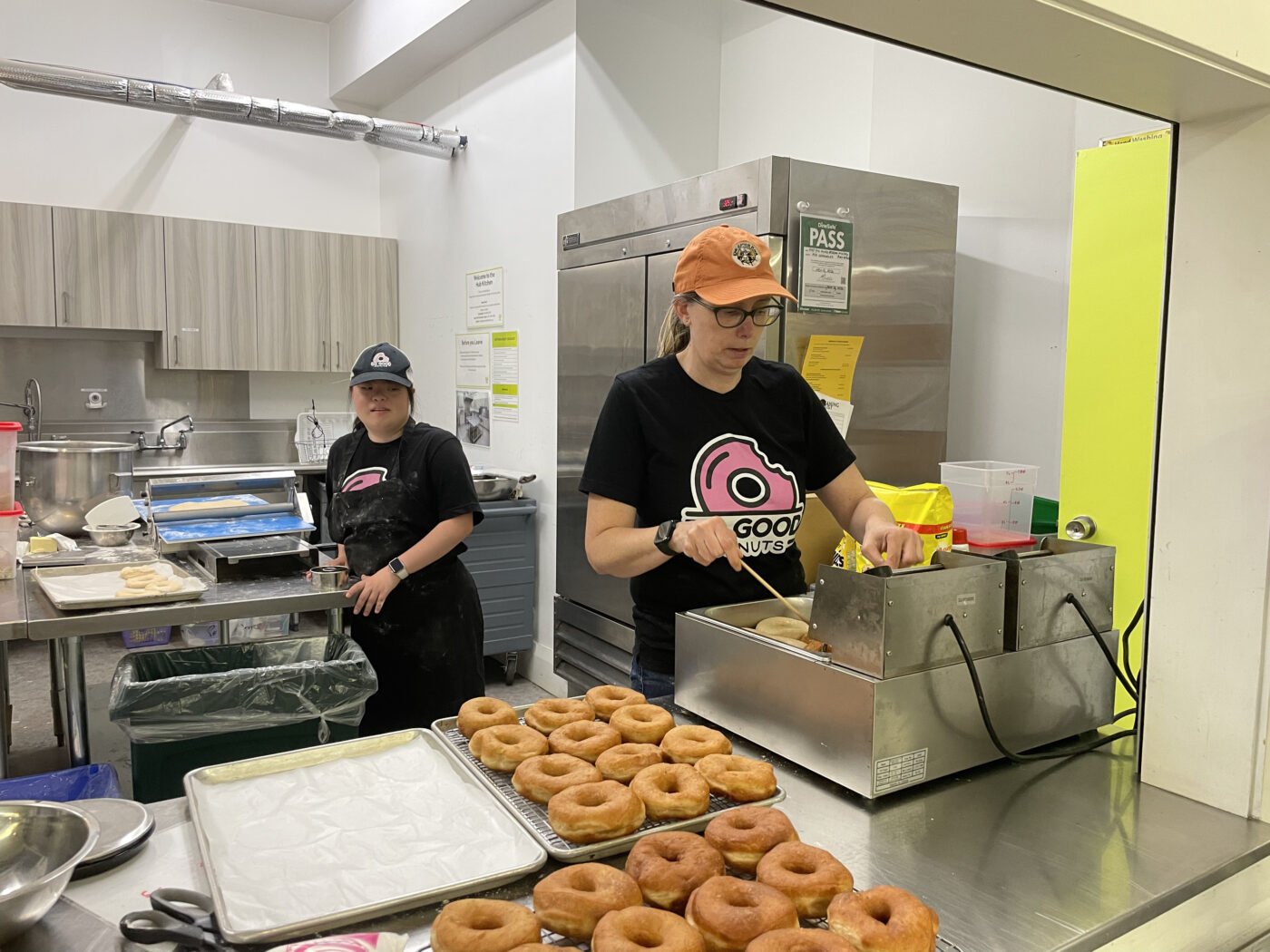
Melanie Côté, founder of Do Good Donuts, prepares doughnuts with her team for a pop-up market at the intersection of Gerrard Street East and Rhodes Avenue.

Toronto has more than 160 public markets with over 3,000 entrepreneurs selling their products.
A 2024 OCAD University study found that difficulty growing a network, inability to leave a full-time job due to finances, and confusion over regulations and taxes are some of the barriers that entrepreneurs face.
Daniel Taylor, the executive director of the Neighbourhood Food Project, says the lack of resources to support entrepreneurs calls for more neighbourhood-level launchpads that are easily accessible.
“We don't have an inclusive system in Canada set up for entrepreneurs. Even if you come from a privileged background, there are huge barriers to launching. You need to take out the kind of business loans, have the kind of credit scores, but also have an understanding of how our system works. How can we expect a newcomer to Canada to do that?”

The East End Food Hub’s bulletin board of programs for East Enders at 1470 Gerrard St. E.

The East End Food Hub, a group of organizations which work towards food resilience, found that entrepreneurs often struggle to make it due to rising costs and competition.
So in 2023, it launched Leslieville Farmers’ Market (LFM) Basecamp, a resource hub for vendors, farmers and artisans.
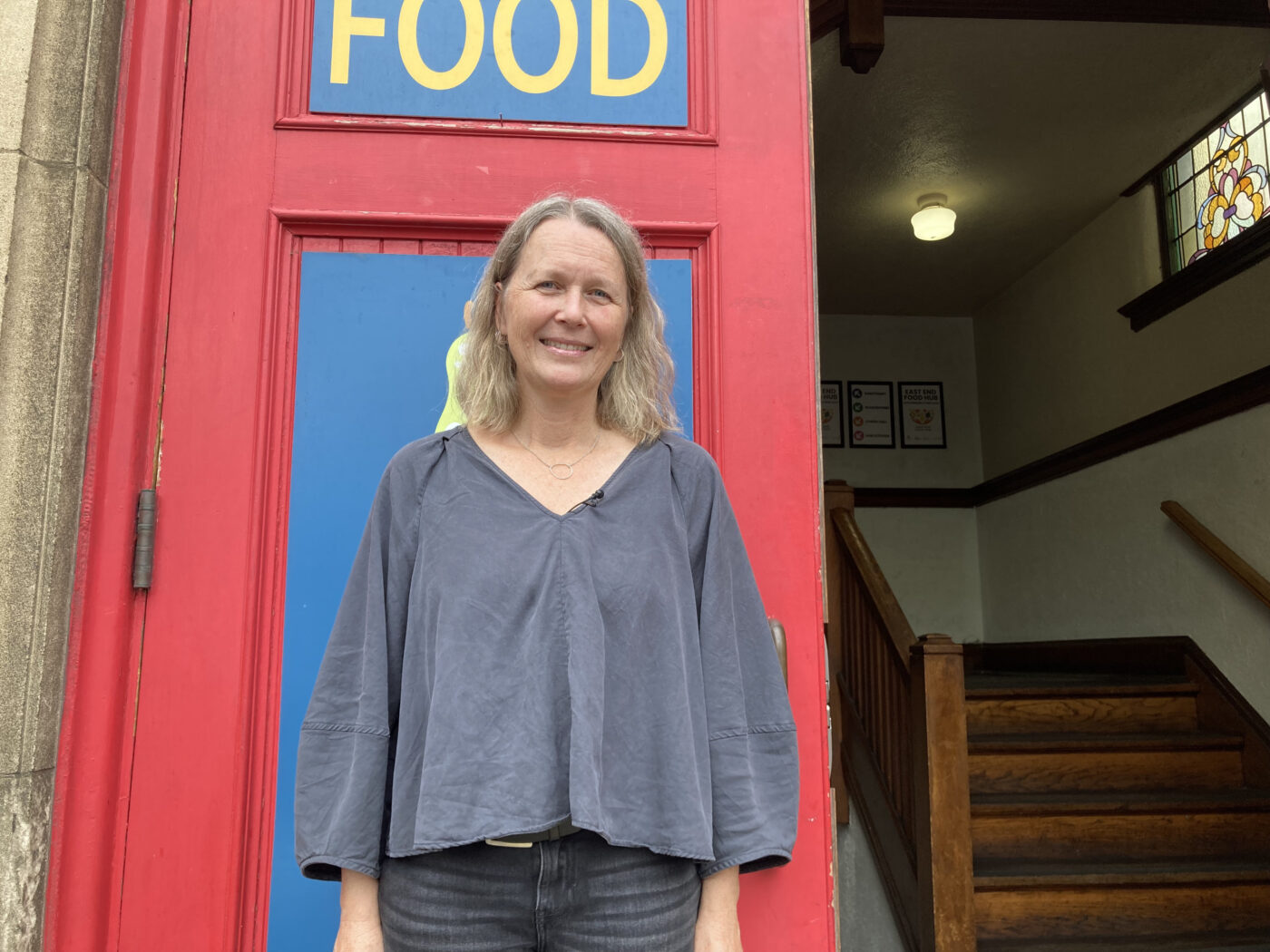
Susanne Burkhardt, executive director of East End Food Hub, which runs LFM Basecamp, stands outside the commercial kitchen at 1470 Gerrard St. E.

Susanne Burkhardt, executive director of Applegrove, a part of East End Food Hub, says food security is a growing issue, and it became even more evident during the pandemic when existing food systems couldn't address people’s needs.
“The local entrepreneur piece is a piece of the puzzle that hasn't traditionally been connected to local community food systems very effectively. I would actually say that we're not just providing resources, we're identifying existing resources and really trying to leverage them so that we can make the most out of them at the local level."
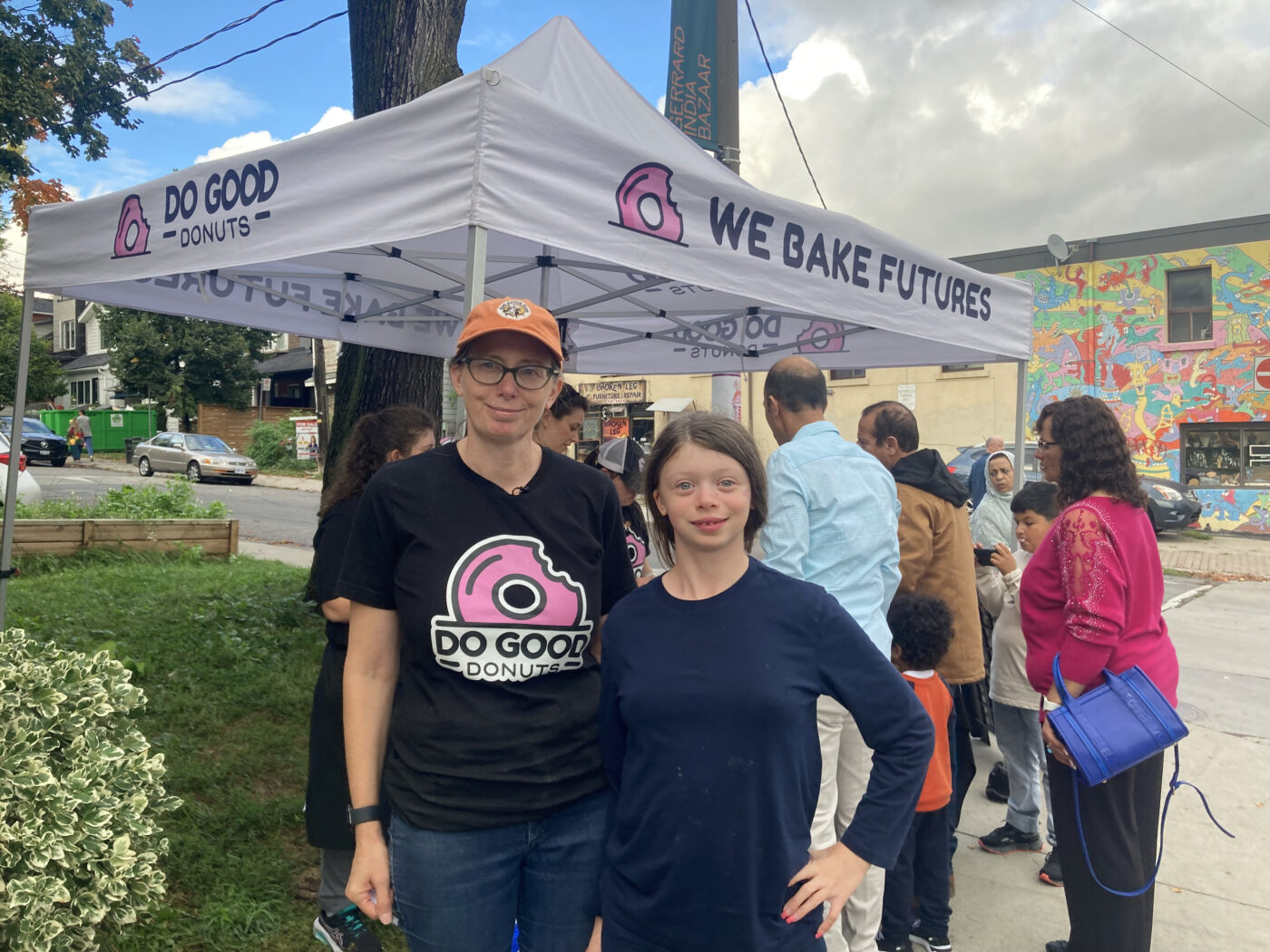
Melanie Côté, founder of Do Good Donuts, stands with her daughter Alma Côté at the LFM Basecamp pop-up market at 1470 Gerrard St. E.

At LFM Basecamp, participants gain access to affordable commercial kitchens and workspaces, in addition to marketing training from experienced vendors and the opportunity to sell their product to over 1,000 customers at the Leslieville Farmers’ Market.
Melanie Côté, founder of Do Good Donuts, was one of the first participants of LFM Basecamp. She helped set up the kitchen in 2023 and continues to use the space.
Côté explains that there are many barriers to entrepreneurship, especially for women, ranging from language and socio-economic barriers, to a lack of childcare.
"LFM Basecamp offers a really rare opportunity to have access to a fully licenced commercial kitchen and to be able to access the time that you need and be around other entrepreneurs who are building their businesses without a very high cost, without the expectation of full weekly rentals.”
“That sense of community and that ability to connect with other people, I think, is a really valuable commodity that you just don't see all that much in Toronto."
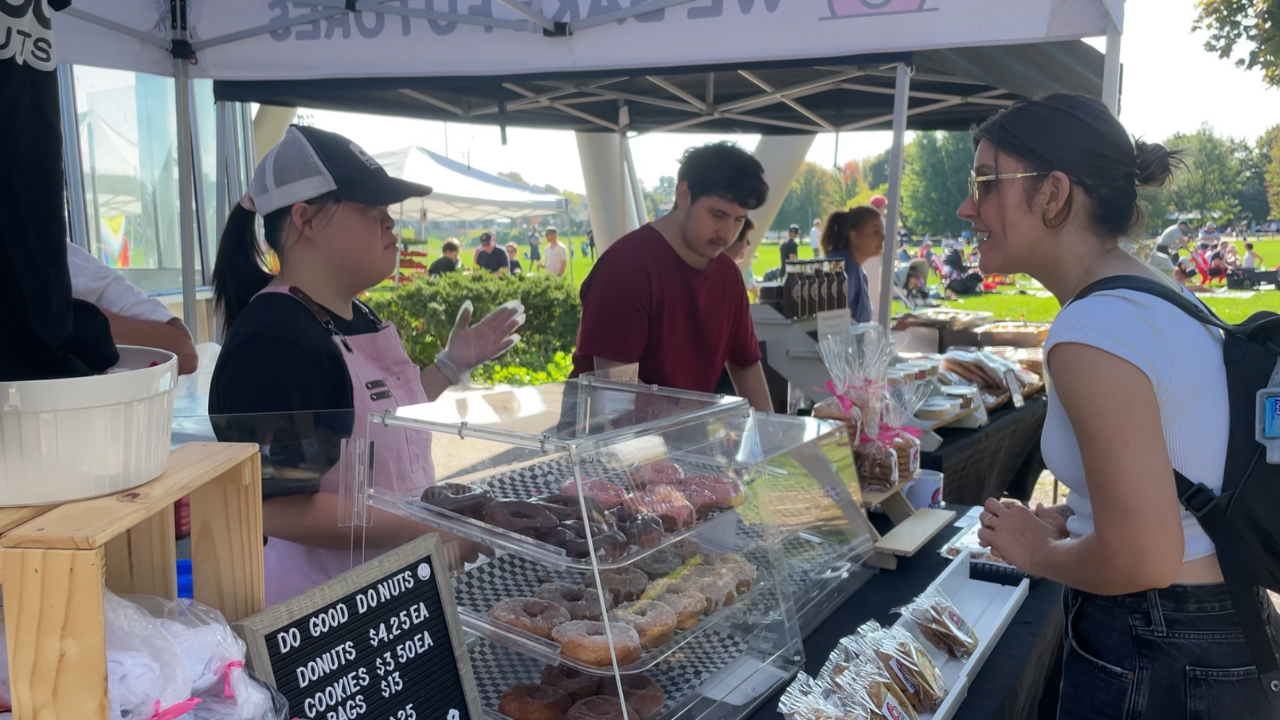
The Do Good Donuts team interacts with customers at the Leslieville Farmers’ Market at Greenwood Park.

LFM Basecamp hopes to build up struggling entrepreneurs who don't have enough resources. This year, for the first time, the program will run year-round, offering more opportunities to entrepreneurs.
Fact-Check Yourself
Sources and
further reading
Don't take our word for it —
check our sources for yourself.